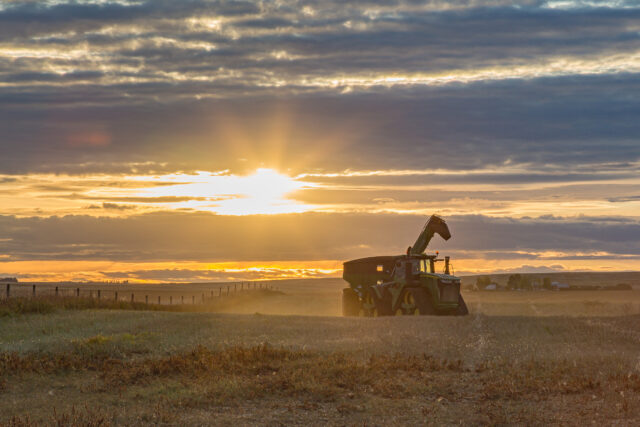
By Paul Kuntz
As we manage our way through this pandemic, I am interested to see how it affects different industries. If we look at the hospitality and entertainment industries, we see devastation. Hotels, restaurants and businesses that depend on tourism have been hit very hard.
The personal care industries like hair and nail salons were forced to close. Massage and physiotherapists had to close. Dentist and optometrists were also not allowed to stay open. A lot of the world changed.
Agriculture had many areas that were not affected. For many of us, life went on as normal. I laughed when I heard people discussing what they were able to accomplish during the lockdown: caught up on reading their favourite book, learned a new language, crafts or exercise. Most farmers kept busy farming. There was no leisure time.
Our flock of sheep began lambing in April during the heart of the lockdown. It was 24 hours a day of mayhem and excitement. We had family helping out and we still could barely keep up. The sheep did not adhere to social distancing rules nor were they in any mood for a lockdown. It was business as usual.
I am sure cattle producers had the same experience. Regardless of stay at home orders, we did stay at home because we were busy carrying on with the business of agriculture.
We went from livestock rearing right into seeding and again the 18- to 20-hour days began. Working around the clock to get the crop seeded. Then, getting up at 4 a.m. hoping there was not an 80 km/h wind so you could get some spraying done.
Going to town to make your purchases had a few changes. We were all more careful with hand cleanliness and sanitizers. We did not visit as much at the local hardware store. But for the most part, living on farm this spring did not feel a lot different than other years.
If you had loved ones that were in a hospital or care home, your life would be much different and also more difficult. If you had compromised health, there would be extra stress on your life. I do not want to make light of that. These are real situations that produced a lot of stress.
Compared to other industries, agriculture went on as it normally does. This is not to say that the COVID-19 pandemic did not have any affect on our industry. The cattle business went through turbulent times. We soon realized that having 95 per cent of the beef processing capacity in three plants—Brooks and High River, Alta., and Guelph, Ont.) is not a great idea. We all understand efficiency but if you have to kill 4,500 cattle per day, that’s the capacity at JBS in Brooks, to be efficient, there is a problem with this industry.
As COVID-19 rolls through, we will see what areas Canada can improve and the areas that are strong. All in all, our food supply remained strong through the lockdown. There was a bit of panic buying but, there was enough for everyone. Except for toilet paper.
The cycles of agriculture and Mother Nature dictate our lives and our schedules. The pandemic definitely threw a wrench into our lives, but the work continues and stops for no one. An example is we saw a decrease in milk demand through the lockdown but that did not affect the work of a dairy farmer. Regardless if the milk went to the processor or not, two or three times a day the cows got milked.
Anyone involved in agriculture should feel truly blessed. We are very lucky to be part of a great, resilient industry. This pandemic has reinforced the place agriculture has in Canada. It is one of the most important industries in our country. We should be proud of the work we do and understand the importance. We are an essential service.










